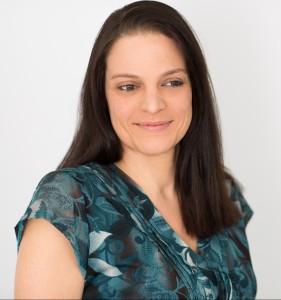Jennifer Gunnin: Working With A Peacemaking Collaborative Attorney
My paralegal, Jennifer Gunnin, has now been with my firm for over 3 years. She was with me when I was still accepting litigation work, and so she saw the toll that lengthy, nasty court battles had on divorcing spouses and their children.
And she has seen the transition of my practice. In July of last year (2015), on the fifth anniversary of my shingle being hung, we changed the name of the business from The Law Firm of Adam B. Cordover, P.A., to Family Diplomacy: A Collaborative Law Firm. Further, we pledged that we would not take on any new litigation cases, and that we would focus exclusively on helping clients resolve their family law matters outside of court via collaborative practice, mediation, and unbundled legal services (we also offer adoption and name change legal services).
Since we shifted our focus to private dispute resolution, Jennifer attended a two-day basic collaborative training (one that is usually reserved for attorneys, financial professionals, and mental health professionals) so that she could better understand the process and help our clients who are utilizing the collaborative process.
One day, my office received a call from Forrest (Woody) Mosten, an internationally acclaimed mediator and collaborative attorney from California, about an American Bar Association book that he and I are co-authoring on Building A Collaborative Law Practice. Jennifer picked up the phone, and they talked about the new focus of our firm, her training, and what it was like to work in a newly courtless practice. Woody suggested that she write an article on Working With A Peacemaking Collaborative Attorney.
And so she did.
You can find her article published at The World of Collaborative Practice Magazine, part of which is published below the jump.
WORKING WITH A PEACEMAKING COLLABORATIVE ATTORNEY
BY JENNIFER GUNNIN
When I joined my firm three years ago, the managing attorney, Adam B. Cordover, preferred and advocated for out-of-court dispute resolution, including collaborative practice. We still had many litigated cases. Not every client, spouse, and other attorney is willing to agree to a more peacemaking approach, especially when they don’t know much about it. But we had faith that we were on to something, and that if given the opportunity and knowledge, more people would choose collaborative law.
***
A month after relaunching the firm, I attended my first collaborative training with Lone Star Trainers in St. Petersburg, Florida. I was looking forward to learning as much as possible about how the collaborative process is a better way to get divorced. I am on the front lines with clients and potential clients every day. I am the first person with whom they speak after oftentimes spending a few sleepless nights arguing, crying, and searching the internet for divorce attorneys. They don’t know where to turn, or whom to trust. They are worried about their children, their finances, and their futures. My job is to help them understand that it is worth the time and expense to speak with an attorney who can explain their options, and assist in dissolving their marriage peacefully and respectfully. It is not always an easy task. People oftentimes know nothing about collaborative practice when they contact us, but many are looking for something different.
Attending the introductory training provided me with additional skills and knowledge that I use to help the clients and potential clients understand that learning about collaborative practice is valuable and important. The training taught me that one of the most important aspects of collaborative practice is self-determination: allowing families to choose their own options to discuss when settling issues, rather than having lawyers and judges make decisions for them. Parents are given a voice, and their futures begin with their thoughts and ideas about what is best for their families.
***
Since beginning my career with this firm, I have learned that the court system is not designed to make decisions for families. Most people have no experience with family law, and are not prepared for the long, expensive, and exhausting battle that a litigated family law case can become. The court appearances continue, the case drags on, the bills pile up, and the judges keep sending the parties back to mediation, and back to their attorneys to try and work it out themselves once again. The court may only know a fraction of what is actually happening within a family, and does not always have the time to listen to each individual, get to know a family, and make the best decision.
Collaborative practice treats individuals as a family unit that has made a decision to change in a respectful and peaceful manner, rather than as adversaries who are on opposite sides trying to “win.” Collaborative practice allows families the dignity of keeping their private issues out of the courtroom. We help families work together to find a solution that benefits everyone and does not leave one person as the loser. We will continue to work to help people improve their lives and care for their families during what may be the most difficult time of their lives. Our hope for the future is that while divorce is challenging, it can be civil, and it does not have to destroy families. We hope that families can look forward to brighter new beginnings.
You can find the entire article published online at The World of Collaborative Practice Magazine.
If you want to learn more about Family Diplomacy’s approach to divorce and family law, schedule a consultation at (813) 443-0615 or CLICK HERE to schedule a consultation.



Leave a Reply
Want to join the discussion?Feel free to contribute!